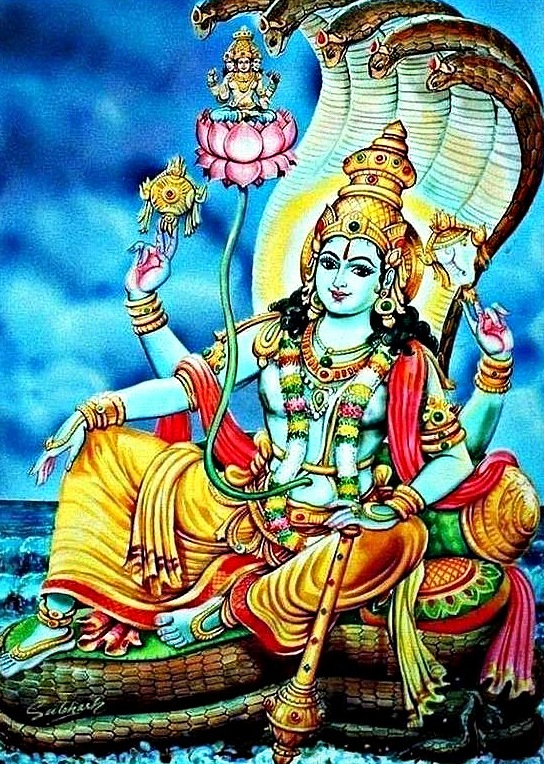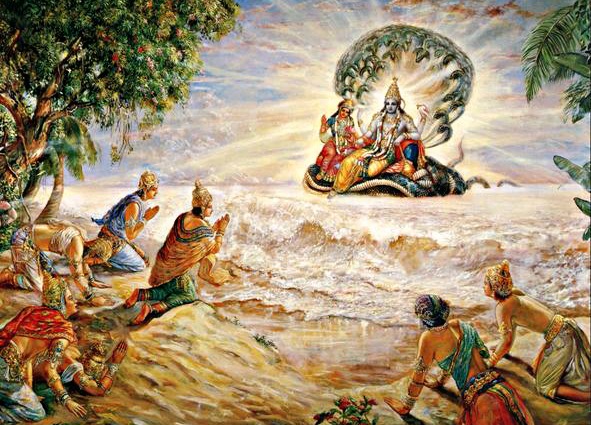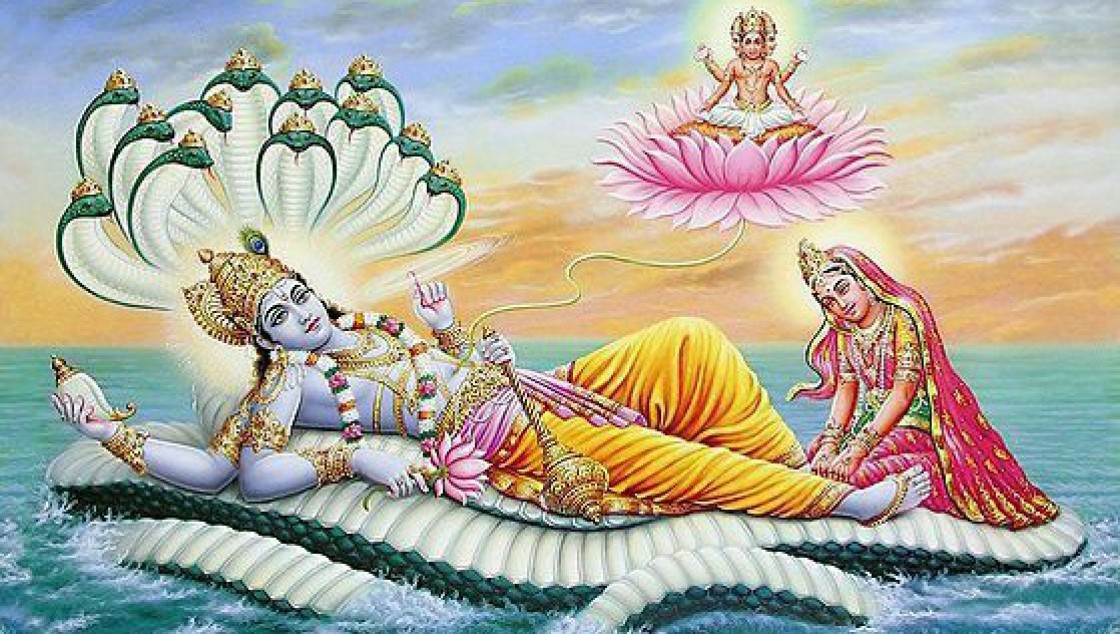As we have explained earlier that there comes Ekadashi twice every month & Hindus observe a fast on this day while eating only farali food, in our previous article “Why Hindus observe fasting?”. But there are few Ekadashi which holds more importance in Hinduism. Prabodhini (प्रबोधिनी एकादशी) is one of the most important Ekadashi in Hinduism. There are few other important Ekadashis also like; Pavitra Ekadashi, Nirjala/ Bhim Ekadashi & Dev Shayni Ekadashi, we will come to those Ekadashi too in our later articles but right now; here we will explain what is Prabodhini Ekadashi (प्रबोधिनी एकादशी) & why it holds such a vital part in Hinduism?
Prabodhini Ekadashi (प्रबोधिनी एकादशी) is also known as Devotthan, Devuthani & Dev Utthayani Ekadashi (देवोत्थान एकादशी). There are few other famous names of this Ekadashi like - Kartiki Ekadashi, Kartik Shukla Ekadashi & Kartiki. As we all know that, Gods & Goddesses never sleep, but here we have to understand that the correct meaning of sleep is deep sleep. Lord Vishnu along with other Gods & Goddesses goes to a deep sleep (योग निद्राम् / सुषुप्ति) on the 11th day of the bright fortnight of Ashadha month (आषाढः शुक्लपक्षे एकादशी) & wakes up on the 11th day of the bright fortnight of Kartika month (कार्तिकः शुक्लपक्षे एकादशी), this is the reason this Ekadashi is known as Devotthan Ekadashi (देवोत्थान एकादशी). The word Prabodhini (प्रबोधिनी) literally means wakening, i.e., the day, Lord wakes up from sleep is known as Prabodhini Ekadashi (प्रबोधिनी एकादशी). Fating on the eleventh (11th) day of the month, which is also known as Ekadashi fasting, is a very important in Hinduism. As per the Hindu calendar (पञ्चाङ्गम्) there are total twenty-four (24) Ekadashis throughout the year, however this number may increase to twenty-six (26) Ekadashis whenever extra month (अधिकमासः) is added. Most of the Hindus observe all the Ekadashi fasting but there are few Hindus who rather observe fast on special & important Ekadashis only like Prabodhini, Nirjala, Devshayni & Pavitra Ekadashi.

Significance of Prabodhini Ekadasi (प्रबोधिनी एकादशी) –
According to the Hindu Calendar, Prabodhini Ekadashi (प्रबोधिनी एकादशी) is celebrated on the 11th day of the bright fortnight of Kartika month (कार्तिकः शुक्लपक्षे एकादशी). This day marks as the day Lord Vishnu along with other Gods & Goddesses wakes up from a deep sleep which is also known as Yoga Nidra (योग निद्राम्) (i.e., Meditation). This deep sleep (योग निद्राम् /सुषुप्ति) starts from the 11th day of bright fortnight of Ashadha month till the 11th day of the bright fortnight of Kartika month (आषाढः शुक्लपक्षे एकादशी) i.e., from the Ashadha month till the Kartika month (04 months- Ashadha, Shravana, Bhadrapada, Ashwina & wakes up in Kartika month). From this Prabodhini Ekadashi (प्रबोधिनी एकादशी) onwards all auspicious ceremonies begin. Auspicious ceremonies like marriage, house warming or any new ventures can be conducted from this day.
The fruit of Kartik Shukla Paksha Ekadashi fast is equal to the fruit of hundred Rajasuya Yagna (राजसूय यज्ञः) & one thousand Ashwamedha Yagna (अश्वमेध यज्ञः). On this Ekadashi, devotee chants Shlokas, do puja ritual of bathing Gods & Goddesses, applying Tilak, adorning new clothes & jewellery, offering fresh flowers, offering food, waving arti, doing bhajan-kirtan & spending whole day engaging in worshipping Gods & Goddesses. As per the Puranas, fasting on Ekadashi burns hundred (100) of past sins so, fasting on all the twenty-four (24) Ekadashis of the year, one can burn total two thousand four hundred (2400) past sins & one can attain Vaikuntha after death. Worshipping Lord Vishnu on this day holds vital part as Lord Vishnu nourishes the whole universe, Ekadashi is the special day of worshipping Him. Therefore, many Hindus may read Puranas & chant Bhagawad Geeta to please Lord Vishnu. Below are the shlokas which are recited on this day while playing bells, drum, etc. & blowing conch for waking Lord Vishnu from deep sleep (योग निद्राम् /सुषुप्ति);
उत्तिष्ठोत्तिष्ठगोविन्द त्यजनिद्रांजगत्पते।
त्वयिसुप्तेजगन्नाथ जगत् सुप्तमिदंभवेत्॥
Meaning- O Govinda! Wake up, please wake up, O Lord of the Universe! Please abandon sleep. O Jagannatha! Due to your deep sleep, it looks like this whole world is sleeping.
उत्तिष्ठोत्तिष्ठवाराह दंष्ट्रोद्धृतवसुन्धरे।
हिरण्याक्षप्राणघातिन्त्रैलोक्येमंगलम्कुरु॥
Meaning- The one who firmly held the Earth on his large tooth, that Lord Varaha (i.e., the 3rd incarnation of Lord Vishnu as a Boar), wake up please wake up. The slayer of the demon Hiranyaksha, wake up & bring out the auspiciousness in all the three worlds.

Historical Account of Prabodhini Ekadashi (प्रबोधिनी एकादशी) –
According to the Puranas, there is a famous legend related to this day. Once there was a demon named Shankhasura who stole the Vedas after which various Gods approached Lord Vishnu to regain it. Lord Vishnu assured the Gods that the Vedas will be saved. Later, Lord Vishnu fought with the demon Shankhasura for many days & defeated him. As Lord Vishnu fought for many days with the demon, he got tired & went to Ksheer Sagar (क्षीर सागरः) to rest. He rested for four (04) months & woke up on this day, i.e., 11th day of bright fortnight of Kartika month (कार्तिकः शुक्लपक्षे एकादशी). The day he went asleep is the day known as Devshayni Ekadashi (आषाढः शुक्लपक्षे एकादशी). Thus, since that day it is believed that Lord Vishnu goes to a deep sleep for four (04) months.
According to another legend, once Goddess Lakshmi asked, “Lord Narayana that, O Lord! Either you remain awake for day & night, or go on a deep sleep for millions of years. This imbalance the world & destroys everything, moving or not. So, it will be better that you sleep for a few months every year. This will give me some time to relax as well.” Narayan smiled & told Goddess Lakshmi that, “Devi! You are right! The whole world & especially you face problems because of me. You do not even get time to relax & sleep. Therefore, from now on, I will sleep for four months every year during rainy season. These four months sleep will be my short sleep (अल्प निद्राम्) & will be highly auspicious for my devotees. During this time, the devotees who will serve me dedicatedly & zealously while organizing the festivities of my sleeping & my awakening; I will reside in their homes with you. While the destruction period (प्रलयकालः) when the world will end, will be called my deepest sleep (महा निद्राम्).”
Thus, Prabodhini Ekadashi (प्रबोधिनी एकादशी) is a ritual festive to wake Lord Vishnu from a deep sleep on this day. This day also marks the end of the four-month period of Chaturmaas (चातुर्मासः). Prabodhini Ekadashi (प्रबोधिनी एकादशी) marks the beginning of the marriage season & all the auspicious ceremonies in Hinduism from this Ekadashi. Prabodhini Ekadashi (प्रबोधिनी एकादशी) is followed by Kartik Purnima, which is celebrated as Dev Diwali or Diwali of the Gods. From Prabodhini Ekadashi the marriage rituals of the Deities are held; first of all, Lord Vithhala gets married to Goddess Lakshmi the, Lord Rama gets married to Goddess Sita later, on the full moon day of the bright fortnight of the Kartika month (कार्तिकः शुक्लपक्षे पूर्णिमा) Lord Vishnu & Goddess Tulsi gets married. Many Vaishnavas also conduct Tulsi Vivah any day starting from 11th fortnight till the full moon day of bright fortnight of Kartika month. So, from this Ekadashi, Dev Diwali (Diwali of Gods) begins & the time that follows this occasion is considered auspicious for marriages & other important life events. Hindu marriage & any auspicious ceremonies are prohibited during Chaturmaas (चातुर्मासः) i.e., four months of Lord Vishnu’s deep sleep in Hinduism.
आषाढः कृष्णपक्षे ०३,२०७७
